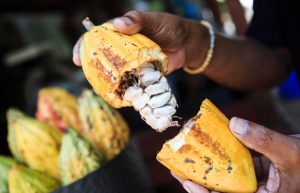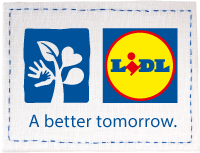Human Rights & Ethical Trade

Human Rights Due Diligence
As outlined in our Human Rights & Environmental Due Diligence policy, published in 2019, we systematically monitor and assess human rights risks in our supply chains. Our risk assessment process is informed by greater transparency, our social compliance programme, internationally recognised assessment tools, as well as knowledge gathered through our supplier relationships and expert NGO partners.
Modern Day Slavery
The International Labour Organization (ILO) estimates that at least 21 million people worldwide are victims of forced labour. It is regarded as the fastest growing criminal industry and has been identified across multiple private sector economies, from construction and manufacturing to agriculture and fishing. Victims of slavery are often hidden within complex supply chains, controlled and threatened by criminal perpetrators, making their plight challenging to both identify and effectively remediate. Therefore we believe the only way to approach this topic is to ensure collaborative actions with other retailers and industry groups.
We welcome the Modern Slavery Act which the UK government introduced in 2015, enforcing businesses with a turnover of 36 million or more, to publicly disclose their approach and actions to tackle forced labour and human trafficking. Please read our Modern Slavery Statement Policy in here
Supporting Women in our Supply Chains
We know that women play a crucial role within our food supply chains and understand that women can be more vulnerable to human rights violations, violence and abuse. Through our supply chain risk assessment, we understand that gender discrimination is prevalent within our sourcing locations.
We have also implemented several projects and programmes in key priority supply chains to specifically support the livelihoods of women workers and farmers including in coffee; cocoa and soy supply chains. We continue to work closely with partners to promote and support resilience amongst farmers and their communities, as well as providing updates on the impact of our programmes through our CSR reporting.
- Ivory Coast, Cocoa – since May 2012 direct support is provided to 45 co-operatives reaching 18,000 smallholder cocoa farmers so far. Support provided includes developing marketing strategies; technical support, promoting diversification and female farmers on crop diversity.
- Guatemala, Coffee – since Oct 2018 there have been improvements in productivity with a focus on climate change resilience for 90 female farmers as part of a co-operative.
- Bolivia, Coffee – since July 2016 we are supporting resilience of 8 smallholder coffee cooperatives in Bolivia by providing direct training of over 264 smallholder farmers.
- Brazil, Soy – since Oct 2018 a direct trade sourcing model has been implemented to support smallholder soy farmers.
Product Certifications
We understand the potential barriers facing our supply chain with workers access to grievance mechanisms and remediation. Lidl’s collaborations with the Fairtrade Foundation, UTZ, and the Rainforest Alliance is aimed at helping enhance the lives of farming communities around the world by improving farming methods, protecting the environment, and increasing income through fair prices. Each of these standards have specific requirements to enable grievance mechanisms and remediation.

Complaint Mechanisms
Access to an effective grievance mechanism for employees in global supply chains is an essential part of corporate due diligence in order to uncover human rights risks and rights violations. Regardless of the complexities of the supply chain or circumstances such as language skills, access to information technology, cultural difference, employees should have access to grievance mechanisms.
Lidl has therefore set itself the goal of piloting complaint mechanisms in various supply chains in order to identify scalable and effective approaches. In this first step, we have started to pilot complaint mechanisms in three risk supply chains:
- Berries from Spain
As part of this pilot project, we have worked with our partners Elevate to create a new, effective complaints mechanism for workers in the berry sector in Huelva, Spain. The complaint mechanism will be piloted with selected producers as part of the 2021/2022 harvest season. We attach particular importance to addressing existing access barriers for employees. The complaints mechanism has multiple complaints channels, including a hotline manned by trained staff, as well as the ability to report complaints via Whatsapp. Complaints are accepted in any language. The verbal exchange with the hotline employees is possible in Spanish, Arabic and English. In addition, workers are trained in the use of the mechanism. In order to take into account the fact that the majority of the workers on site are women from North Africa and Eastern Europe, all hotline employees are women. We will evaluate the pilot after the end of the harvest season and report on results and next steps.
- Palm oil from Malaysia
In Malaysia we work with our suppliers Griesson – de Beukelaer and Cargill to pilot an effective grievance mechanism in the palm oil sector. We use an existing complaints mechanism that was developed by our partner Elevate and is already being used by other companies. As part of the pilot, we are working with selected palm oil suppliers and their palm oil plantations to evaluate whether the complaint mechanism is suitable for a further roll-out in other regions or in relation to other product groups. The pilot is expected to run until the end of 2022.
- Coconut milk from Vietnam
In Vietnam, we are piloting another complaint mechanism, which is provided by the service provider Ulula in cooperation with amfori. This is a mechanism that is tested in both non-food and food areas. Lidl is participating in the project with production facilities in the textile and coconut milk sector. As part of the pilot, workers are also provided with various channels of complaint. Since several clients are often active in a production facility, complaints are investigated uniformly with the involvement of a commissioned third party and remedial measures are developed. The pilot will run until mid-2022 and will subsequently be evaluated by amfori and its members to consider further scaling.
Working with our Non-food Suppliers
We have been a member of the Business Social Compliance Initiative (BSCI) since 2007, committing us to improving working conditions for people employed in our non-food supply chains. As part of the membership, Lidl’s non-food suppliers are required to regularly carry out independent social audits by qualified local personnel for all non-food producers and to comply with recognised international labour standards.
Since 2008, we have also focused on going ‘beyond compliance’ in Bangladesh, working in partnership with the German Association for International Cooperation (GIZ) to provide dedicated training programmes for production facilities to support compliance with international labour standards. Our current joint programme focuses on Bangladesh, where GIZ currently employs more than 20 people who work exclusively for Lidl and to date have delivered on-the-ground training to 80 textile manufacturers across the country.
We are a member of the Bangladesh Accord, which is an independent, legally-binding agreement between brands and trade unions designed to work towards a safe and healthy Bangladeshi ready-made garment industry.
We are also part of the Action Collaboration Transformation (ACT) initiative. ACT is an agreement between global brands, retailers, unions and governments which aims to secure living wages for workers in clothing, textile and shoe industries. This ambition is achieved through national collective bargaining agreements at industry level which are supported by improved purchasing practices by the ACT member brands. Through this declaration we are confirming our commitment to responsible sourcing by focusing on collaboration with key stakeholders to address systemic challenges, leverage change and in turn increasing the number of suppliers covered by long-term commercial agreements.
As part of our journey towards greater transparency, we have committed to publishing tier one information on our non-food supply chains. This includes disclosing information on the name, address and country of origin of all of our own-label suppliers.
Within the non-food range our supplier list includes textiles and shoe suppliers, as well as hardware suppliers of products such as games, sports equipment and garden furniture.
Our supplier lists can be downloaded on the following links:
Lidl Northern Ireland is also part of the wider Schwarz Group. The Schwarz Group, includes the retail chains Kaufland and Lidl, the environmental services provider PreZero, Schwarz Produktion and Schwarz Dienstleistungen, and recognizes its responsibility to respect human rights. On this basis, the following policy statement is issued on behalf of all companies of the Schwarz Group. It complements existing corporate principles, policies and addresses the impact of our activities at all locations and in all our business operations around the globe.
To download the Policy Statement that applies to the entire Schwarz Group click here


